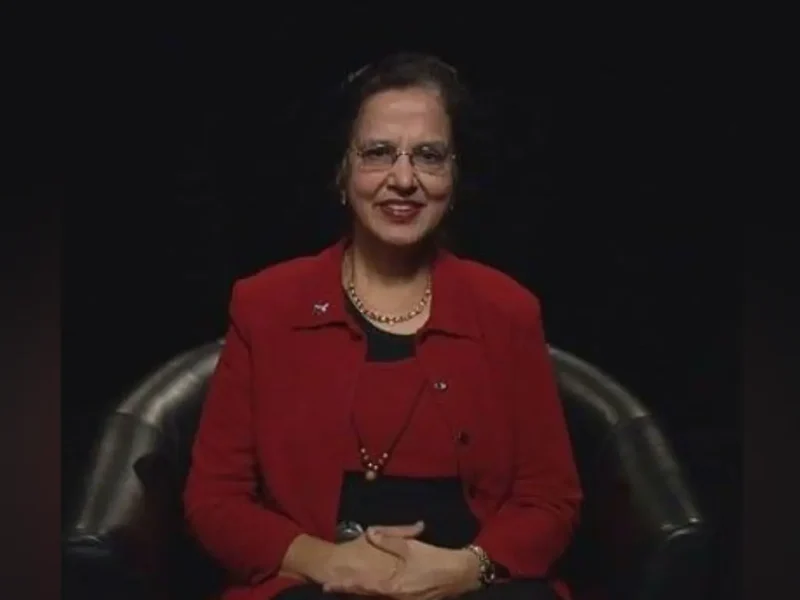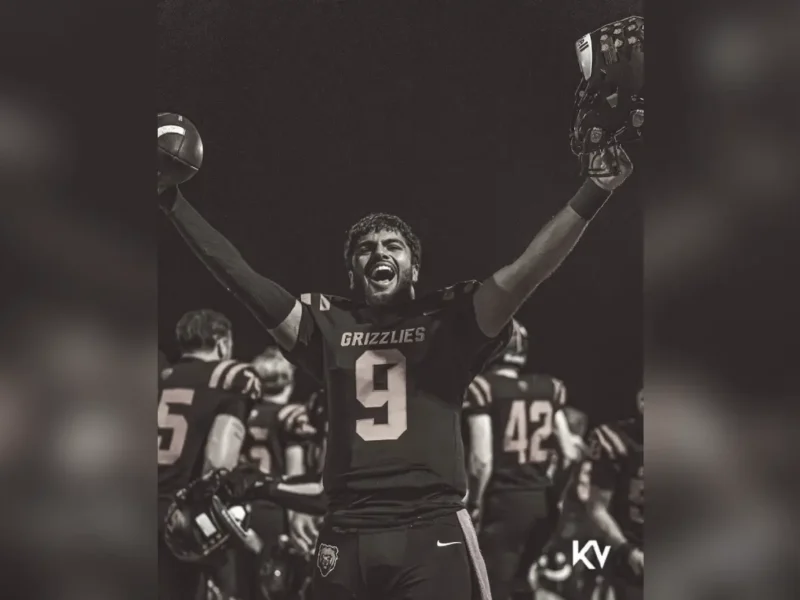
Indian American Attorney Part Of Lawsuit That Prompted Historic Zero Bail Policy In L.A
Salil Dudani is one of the attorneys in the class action lawsuit that argued against the “wealth-based” detention system in Los Angeles.
By REENA RATHORE
LOS ANGELES, CA – Calling the policy of cash bail a “clear, pervasive, and serious constitutional violation,” a Los Angeles Superior Court judge has issued a preliminary injunction to ensure that people accused of low-level, non-violent offenses are no longer detained while awaiting arraignment simply because they cannot afford bail.
When law enforcement officials arrest someone, they set charges which come with a specific bail amount as listed on the county’s bail schedules. Those who can pay the money upfront are able to secure their freedom while others wait for their turn in a jail cell.
Under this new ruling, the Los Angeles Police Department and L.A. County Sheriff’s Department cannot require cash bail for people arrested for certain crimes prior to their arraignment. Repeat offenders while out on no bail may be made subject to a cash payment.
The injunction, which went into effect May 24, reinstates the zero-bail policy in effect during the pandemic to minimize overcrowding in jails. Hearings are currently being held to figure out the next steps for the injunction.
The case that prompted this decision is a class action lawsuit representing six people who were held in custody for days because of their inability to make bail. The lawsuit argued that arrestees with “sufficient wealth” (or whose family and friends can acquire the funds) to post the scheduled bail amount promptly go free. They called this “wealth-based” detention “unconstitutional.”
Indian American lawyer Salil Dudani, one of the attorneys in the lawsuit, called it a positive step towards reforming the criminal justice system.
“Cash bail, which is literally the price of freedom, is senseless, cruel, arbitrary, and indefensible. It’s a clear violation of constitutional rights and it’s causing so much harm in the public interest that the court ordered an injunction. That’s an obvious and overdue first step…,” Dudani told India-West. “It has profoundly devastating consequences on the individual who is arrested, on their family, and ultimately on their community. People lose their jobs because they can’t show up to work, and people are cut-off from their medications, physical and mental health care. Often people can even lose the custody of their children because they are in jail and can’t care for them only because they don’t have enough access to cash.”
Dudani, an attorney at Civil Rights Corps, litigates money bail and other abuses in the criminal justice system. He went on to explain that between their arrest and their first hearing in court, which is about 2- 5 days in L.A., the person arrested has not been formally charged with any crime.
“No prosecutor has looked at the case, no lawyer of any kind has looked at their file so it’s just police’s suspicion that they have committed a certain crime and the police’s decision as to what crime to charge and that leaves a situation where many people are never charged with the crime that the police have accused them of,” he explained.
He said the purpose of bail was to encourage people’s appearance at all court dates and protect public safety but “using cash bail schedule like L.A.’s and like most places in California, is contrary to that cause and that’s the academic consensus.”
Commenting on the efficacy of money bail, Dudani said there is no evidence to support the idea that a person needs a monetary incentive to show up at court. In, fact, he stated, it makes people less likely to show up in court, and it makes them more likely to commit crimes in the future because their lives are destabilized.
“And that’s why we brought this case. It’s not only unfair but it’s contrary to public safety. It increases crime rate; even a few days in jail destabilizes people’s lives so fundamentally,” he said.
Out of the six named plaintiffs in this case, one was never charged with any crime at all, Dudani pointed out. Some of them were charged with misdemeanors, with much lower corresponding bail amounts on the schedule than the felonies that the police said they committed. And four out of six were just released on the day of arraignment.
“They were in jail for five full days and the moment a judge and lawyer looked at the case, they said you are safe to release,” he said. “…It’s wasteful and unnecessary in addition to being unfair and contrary to public safety.”
Superior Court Judge Lawrence Riff in his 58-page decision stated that evidence demonstrates that secured money bail, as now utilized in Los Angeles County, is itself ‘criminogenic’ — that is, secured money bail causes more crime than would be the case were the money bail schedules no longer enforced.”
In jurisdictions with well-functioning pre-trial systems such as New Jersey and Washington, D.C, a great majority of people are released, Dudani noted.
“Most people are perfectly safe to release and in fact, that’s what places like L.A. do but for those who can afford to pay,” he remarked. “For the small minority who aren’t released, they are promptly brought before a judge and they are given due process: they are given a lawyer, a hearing and then the least restrictive conditions on their release are imposed. That’s very far from how the L.A. system works. For that period, people don’t have lawyers, there is no hearings, and they are just sitting in jail solely because they can’t pay. That doesn’t make sense.”
Dudani knows what wrongful detention can do to you from first-hand experience. When he was in college and interning at the D.C. Public Defender Service, he was detained on suspicion of terrorist activity by the D.C. police.
“It only reinforced what I saw happening to our clients day after day,” Dudani, who later recounted his experience in a TED Talk, told India-West. “That is part of what set me on this path. That was a very eye-opening experience for me seeing the extent of racial injustice and the overall cruelty in the criminal system.”
The young activist, a graduate of Yale Law School, underscored the effectiveness of alternative measures such as electronic court date reminders, mental health services, transportation, and childcare assistance for people.
“Court reminders literally just text message reminders…Sounds so simple but it makes sense, right? Like every time I have a dentist appointment, I get a text message that helps me remember so why appearances shouldn’t be like that,” he asked. “In New York City, when they rolled our court reminders, it increased court appearances by 26 percent.”
Citing studies, Dudani reiterated that “there is rigorous research that asked the question: ‘Does money bail do anything at all to protect public safety?’ And the answer is no.”
He went on to add that numerous studies have shown that money bail does not increase appearance in court which is its traditional purpose.
And that’s not surprising, he said, because the way the system works, in 99 percent or more cases, people hire private bail bond companies to post their bond.
“That industry is only legal in the U.S. and the Philippines. No other country thinks this is an appropriate way to determine who sits in jail and who cannot,” said Dudani, adding that the cash bail system disproportionally impacts poor people as the individual or the family pays a non-refundable fee, a premium, to the bail bond company.
“This is what people often refer to as 10 percent and it’s not always 10 percent and the price varies. In fact, they are often exploited wherein people go in debt for a number of years paying the bail bond company,” he explained. “It’s not like they have money on the line and will get their money back if they show up to court. No. They may never be charged with a crime at all, they won’t get it back; they may go to trial and be found not guilty, they won’t get their money back or may attend all their court dates or a case is dismissed. So it’s not a situation where they directly post they bond and they are incentivized that they’ll get it back. It goes to the company.”
When asked to expound, he said: “The theory is that if they don’t show up in court then the court/government will come after the company for the money and the company will go after the person. But the data shows that in practice that rarely happens. It’s just an arbitrary and tremendous transfer of wealth from the poorest neighborhoods in L.A. and everywhere and these are predominantly black and brown neighborhoods who need that money for the safety, security and future of their families and it’s an arbitrary extraction of wealth from a big industry…we are talking about hundreds of millions of dollars per year.”
As the impact of this ruling unfolds, a new bail schedule is expected to come into effect Oct.1, said Dudani, who was previously a trial attorney at Federal Defenders of San Diego where he represented individuals accused of federal crimes such as re-entering the U.S. in order to flee violence and poverty.
While cash bail is “cruel and unfair,” Dudani said, pre-trial detention itself can have many harmful effects.
“It’s important to move beyond this cash bail system but it is also important to be sure that whatever replaces it avoids unnecessary detention which not only disrupts people’s lives but also undermines public safety,” he noted. “Unnecessarily expensive and similarly disruptive pre-trial conditions like electronic monitoring and house arrest, burdensome and unnecessary drug testing in cases where there is no need for it. Research shows that all these conditions are also counterproductive and waste government resources.”
Dudani opined that the way to achieve public safety is not by “carceral control.”
“It is by investing in things that actually make us safe like housing and health care…There is a lot of misinformation and a lot of very misleading and selective use of statistics when it comes to bail reform and L.A. is no exception,” he said.



